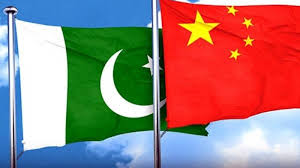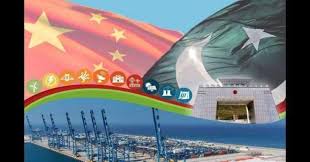Sino-Pak cooperation in logistics contributes to trade facilitation between two countries

Beijing: With the deepening of China-Pakistan trade ties, joint ventures and other in-depth cooperation in logistics sector contribute to trade facilitation between the two countries as China was Pakistan’s largest trading partner and the second largest export destination country.

CP WWL, a joint venture between Freight Connection Pakistan and Worldwide Logistics Group, is the logistics carrier of the Pakistan’s Orange Line Metro Train (OLMT) project in Lahore – the first large-scale rail transit project under China-Pakistan Economic Corridor.
About 2,000 containers (TEU) were used for the OLMT project, which cost US$1.6 billion, said Xu Zhonghua, executive director of FCP WWL – responsible for unloading cargoes at the Karachi Port, customs clearance and transporting related materials to construction site of the OLMT project, told China Economic Net (CEN).
The trade volume between Pakistan and China has grown rapidly showing an increase from US$4 billion in year 2004-2005 to around US$20 billion in the recent years.
The China-Pakistan shipping market currently has 7 routes, mainly covering Shanghai, Ningbo, Shekou, Qingdao a week, with a voyage of about 18-22 days.
It can almost meet the demand of the destination port and more Pakistani goods are expected when the vessels return to China, said Wang Fei, Sea Freight Division – Line Executive of Asia & Africa, Worldwide Logistics Group.
The demand for Sino-Pak transnational logistics is strong. Since the beginning of this year, due to the COVID-19 pandemic, fare increase, delayed airfreight and overbooked flights occurred in the China-Pakistan shipping market.
In response to the traditional international logistics problems, an exhibitor at the CIIE introduced a solution.
According to the original international logistics practice, from cargo trailers, customs declaration to warehousing, importers are required to log in to different pages to operate.
Now such services can be completed online, shortening the time by at least three-fold, said Huang Kanqi, head of government affairs at YunQuNa, a China-based provider of international logistics services.
Huang explained that affordable and efficient logistics solutions will be recommended after the platform receives importers’ transportation demand.
Touching upon the development prospects of China-Pakistan logistics industry, Yan Haitao, a staff at the YunQuNa booth, said that Gwadar Port has huge opportunities.
The company may set up branches in Pakistan and conduct China-bound transport business via Gwadar Port or railway.
In addition to logistics, for Pakistani SMEs who are not familiar with Chinese policies, how to enter the Chinese market faster remains a greater challenge.
One-stop service from logistics to sales can provide solutions for Pakistani small and medium exporters.
“Cargoes from overseas warehouses can enter Yiwu Comprehensive Bonded Zone through international logistics and then sell through offline channels and Chinagoods, the online platform developed and operated by Yiwu China Commodities City,” said Chen Yangjun, head of the Yiwu Comprehensive Bonded Zone exhibition area, in an interview.
According to Chen, both the pains of Chinese enterprises in finding quality sources and the difficulties of foreign SMEs unfamiliar with Chinese policies and import procedures can be solved through the overseas warehouse plus domestic exhibition hall model.





